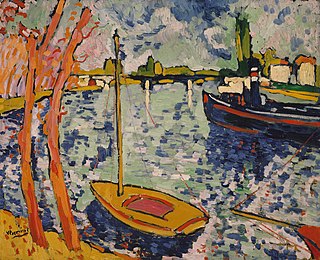A Quote by Plato
In the world of knowledge, the essential Form of Good is the limit of our inquiries, and can barely be perceived; but, when perceived, we cannot help concluding that it is in every case the source of all that is bright and beautiful -in the visible world giving birth to light and its master, and in the intellectual world dispensing, immediately and with full authority, truth and reason -and that whosoever would act wisely, either in private or in public, must set this Form of Good before his eyes.
Quote Topics
Act
Authority
Barely
Beautiful
Before
Birth
Bright
Cannot
Case
Concluding
Either
Essential
Every
Eyes
Form
Full
Giving
Giving Birth
Good
Help
His
His Eyes
Immediately
Intellectual
Knowledge
Light
Limit
Master
Must
Our
Perceived
Private
Public
Reason
Set
Source
Truth
Visible
We Cannot
Wisely
World
Would
Related Quotes
The possible truths, hazily perceived in the world of abstraction, like those inferred from observation and experiment in the world of matter, are forced upon the profane multitudes, too busy to think for themselves, under the form of Divine revelation and scientific authority. But the same question stands open from the days of Socrates and Pilate down to our own age of wholesale negation: is there such a thing as absolute truth in the hands of any one party or man?
...as soon as we examine suicide from the standpoint of religion we immediately see it in its true light. We have been placed in this world under certain conditions and for specific purposes. But a suicide opposes the purpose of his creator; he arrives in the other world as one who has deserted his post; he must be looked upon as a rebel against God. God is our owner; we are his property; his providence works for our good.
To form a judgment intuitively is the privilege of few; authority and example lead the rest of the world. They see with the eyes of others, they hear with the ears of others. Therefore it is very easy to think as all the world now think; but to think as all the world will think thirty years hence is not in the power of every one.
Corporate identity deals with how a company is perceived. When you're working for a company, you try to determine what the optimum perception of them should be and develop a set of objectives that often take the form of reinforcing what's there that's perceived to be desirable and finding a way of dealing with misperceptions.
Children’s literature must build a bridge between the colorful dream world full of fantasy and illusion, and a tougher real world full of twists and turns. The child armed with the torch of knowledge, awareness and guidance must cross this bridge and set foot to the intense harshness of the bigger world.
Giving is a miracle that can transform the heaviest of hearts. Two people, who moments before lived in separate worlds of private concerns, suddenly meet each other over a simple act of sharing. The world expands, a moment of goodness is created, and something new comes into being where before there was nothing... But true giving is not an economic exchange; it is a generative act. It does not subtract from what we have; it multiplies the effect we can have in the world.
The business of education has lay[ed] the foundations for nurseries of wise and good men, to adapt our modes of teaching to the peculiar form of our government . . . . He must be taught to love his fellow creatures in every part of the world, but he must cherish with a more intense and peculiar affection the citizens of Pennsylvania and of the United States.
A prevalent fallacy is the assumption that a proof of an afterlife would also be a proof of the existence of a deity. This is far from being the case. If, as I hold, there is no good reason to believe that a god either created or presides over this world, there is equally no good reason to believe that a god created or presides over the next world, on the unlikely supposition that such a thing exists.
Let every nation, right now, do what is best for all citizens of the world: eliminate every form of intervention that would prevent or otherwise hobble mutually beneficial trade between any two parties anywhere in the world. No bureaucracy can help us toward that goal; it must come from a growing realization of the merit of freedom itself.
Whenever a person strives, by the help of dialectic, to start in pursuit of every reality by a simple process of reason, independent of all sensuous information - never flinching, until by an act of the pure intelligence he has grasped the real nature of good - he arrives at the very end of the intellectual world.








































